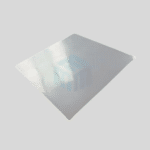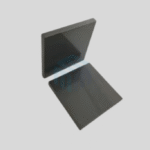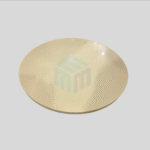Alumina crucibles are essential tools in laboratories and industrial processes that require high-temperature resistance and chemical stability. Made from high-purity aluminum oxide, these crucibles come in various shapes and sizes tailored to different applications. Understanding the different types of alumina crucibles—from cylindrical to boat-shaped—can help you select the right one for your specific needs, ensuring optimal performance and durability.
In this blog, we’ll explore the common types of alumina crucibles, their unique features, and ideal uses to guide you in making an informed choice.
Common Types of Alumina Crucibles:
When selecting an alumina crucible, it’s important to consider the specific requirements of your application, such as temperature range, chemical exposure, and sample size. Different crucible shapes and designs offer unique advantages tailored to various industrial and laboratory processes.
Here are the common types of alumina crucibles you should know about:
By Purity
Purity is a crucial factor when choosing an alumina crucible, as it directly affects its performance, durability, and resistance to contamination. Different purity levels are available to meet the demands of various high-temperature and chemical processing applications.
Here’s a breakdown of alumina crucibles categorized by purity:
-
High Purity Alumina Crucibles (99.5% or higher):
- Applications: Used in applications requiring high resistance to chemical attack, high thermal stability, and minimal contamination, such as in analytical laboratories and high-temperature processes.
- Properties: Excellent thermal and chemical stability, high mechanical strength, low thermal conductivity.
-
Standard Purity Alumina Crucibles (85% – 99%):
- Applications: Suitable for a variety of industrial applications where extreme purity is not critical.
- Properties: Good thermal and chemical stability, but with some level of impurities.
By Shape and Form
The shape and form of an alumina crucible significantly impact its suitability for specific tasks. Different designs provide advantages depending on the type of material being processed and the heating method used.
Let’s explore alumina crucibles classified by shape and form:
-
Conical Crucibles:
- Applications: Ideal for processes requiring precise pouring and minimal loss of material.
- Properties: The tapered shape allows for easy handling and pouring.
-
Cylindrical Crucibles:
- Applications: Commonly used in general laboratory and industrial applications.
- Properties: Straight walls provide uniform heating and easy handling.
-
Rectangular Crucibles:
- Applications: Often used in specialized applications requiring specific geometries.
- Properties: Rectangular shape provides a larger surface area for reactions or melting processes.
-
Crucibles with Lids:
- Applications: Used when the containment of volatile materials or reduction of contamination is required.
- Properties: Lids help to minimize contamination and prevent loss of material.
By Manufacturing Process
The manufacturing process of alumina crucibles plays a vital role in determining their strength, durability, and performance under extreme conditions. Various methods are used to produce crucibles tailored for specific industrial and laboratory needs.
Here’s an overview of alumina crucibles categorized by manufacturing process:
-
Pressed Alumina Crucibles:
- Applications: Suitable for high-volume production and cost-effective solutions.
- Properties: Typically have good dimensional accuracy and uniformity.
-
Slip Cast Alumina Crucibles:
- Applications: Used when complex shapes or larger sizes are needed.
- Properties: Allow for more intricate designs and larger crucibles
-
Isostatically Pressed Alumina Crucibles:
- Applications: Ideal for high-stress environments requiring uniform density and high mechanical strength.
- Properties: High uniformity and mechanical strength due to the isostatic pressing process.
By Special Properties
Some alumina crucibles are designed with special properties to meet unique application requirements, such as enhanced thermal shock resistance, improved chemical stability, or specific mechanical strengths. These specialized features help optimize performance in demanding environments.
Let’s take a look at alumina crucibles classified by special properties:
-
Thermally Stable Alumina Crucibles:
- Applications: Used in applications requiring resistance to thermal shock.
- Properties: Designed to withstand rapid temperature changes without cracking.
-
Chemically Resistant Alumina Crucibles:
- Applications: Suitable for processes involving aggressive chemicals.
- Properties: high resistance to chemical attack and corrosion.
Custom Crucibles
Custom crucibles are specially designed and manufactured to fit unique shapes, sizes, and performance criteria, ensuring optimal compatibility with specialized processes.
Whether you need a particular dimension, enhanced properties, or tailored features, custom alumina crucibles provide the flexibility and precision needed for advanced applications:
Customized Alumina Crucibles:
- Applications: Tailored to specific requirements of a process or application.
- Properties: Can be designed with specific dimensions, shapes, and properties to meet unique needs.
Selecting the appropriate type of alumina crucible depends on the specific requirements of your application, such as temperature, chemical exposure, and mechanical stress.
Read also: Uses and Applications of Alumina Crucible
Conclusion:
Choosing the right alumina crucible is essential for achieving reliable and efficient results in high-temperature and chemical processing applications. Understanding the various types—whether classified by shape, purity, manufacturing process, or special properties—helps you select the best crucible to meet your specific needs.
With options ranging from standard shapes to custom designs, alumina crucibles offer versatility and durability for a wide range of industrial and laboratory uses. By partnering with a trusted alumina crucibles supplier, you can ensure access to high-quality crucibles that enhance performance and longevity in your processes.
M-Kube Enterprise is a USA company catering customized laboratory products, laboratory consumables, and laboratory solutions in the USA, India, Australia, New Zealand, Singapore, Malaysia, South Korea, Dubai, the Philippines, Indonesia, and Vietnam.






